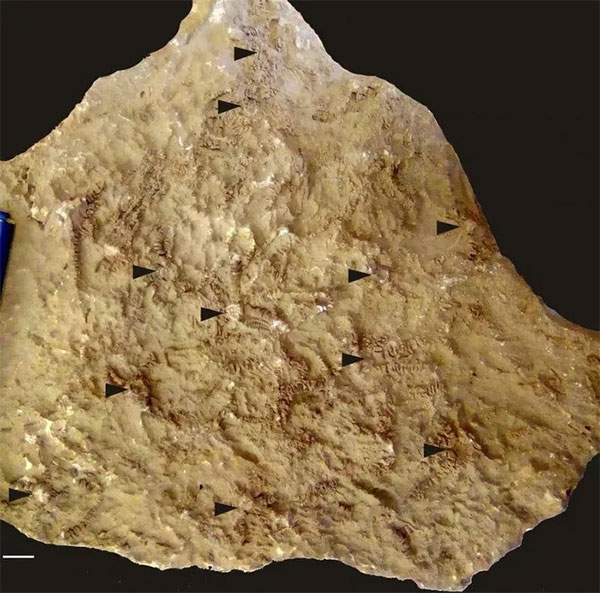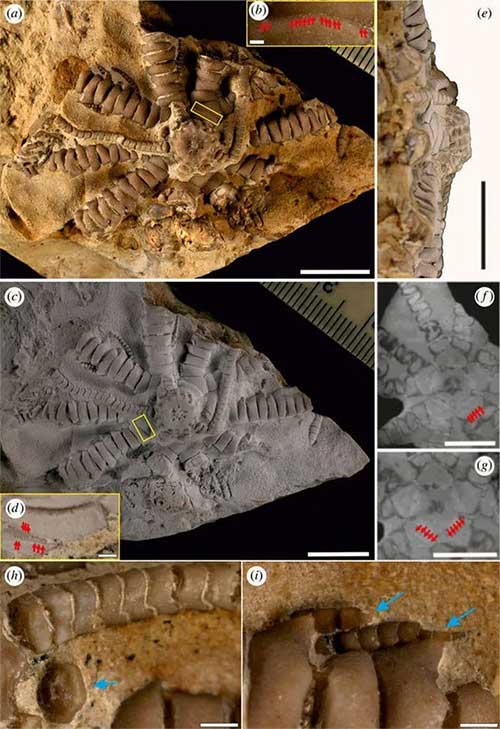An ancient invertebrate dating back 150 million years has been unearthed in Africa and named after Ukrainian President Volodymyr Zelensky.
According to Newsweek, this peculiar creature had 10 long arms and sharp claw-like appendages to grip the ocean floor.

The fossil was excavated at a site in central-west Ethiopia. (Photo: NEWSWEEK)

Close-up of Ausichicrinites zelenskyyi, intact after 145 million years – (Photo: Royal Society Open Science)
This creature is a type of feather star, which are now abundant on rocky seafloors from the equator to the poles of the Earth.
Ausichicrinites zelenskyyi is closely related to starfish, sea cucumbers, and sea urchins.
Professor Mariusz Salamon from the University of Silesia in Katowice, Poland, noted that the fossil was remarkably well-preserved.
“Ausichicrinites zelenskyyi has 10 gigantic arms and a ring of claw-like appendages near its base to firmly anchor itself to the substrate,” he explained.
“The creature lived 150 million years ago and shows presumed traces of arm movement,” the Polish professor added.
“It has been named to honor Volodymyr Oleksandrovych Zelensky, the sixth and current president of Ukraine, for his courage and bravery in defending a free Ukraine,” said Salamon.
Ausichicrinites zelenskyyi measures approximately 2 inches in diameter. Its nearly complete fossil was excavated from a site in central-west Ethiopia, a country located in the Horn of Africa.
Feather stars can display a stunning array of colors, ranging from deep red to vibrant orange and electric yellow. Each arm can grow up to 1 foot (30.48 cm) in length.
Their appendages are used for capturing food. They remain stationary in the water, extending their arms to allow nutrients to flow towards them.
Feather stars also have the ability to shed an arm in a manner similar to how some lizards can drop their tails, serving as a defense mechanism against predators.

















































